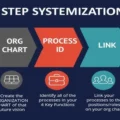The journey to transforming your business into an autonomous entity, one that flourishes without your minute-to-minute involvement, is often misunderstood. The common portrayal of business systemization as a mundane, almost bureaucratic process is far from its true essence.
Business systemization isn’t about crafting a rigid framework that stifles creativity or innovation. Instead, it’s about establishing a set of principles and procedures that enable your business to function efficiently, even in your absence.
This initiative often stumbles upon mental roadblocks and misconceptions among business owners. They harbor fears that their team might resist new systems, believe certain tasks are too unique for standardization, or claim they lack the time to dedicate to this endeavor.
Overcoming these mental barriers is the first step towards embracing systemization as a tool for growth and scalability, rather than an administrative burden.
Business Systems as a Catalyst for Growth
The distinction between working “on” your business versus working “in” it, as popularized by business thought leader Michael Gerber, is pivotal.
This philosophy doesn’t negate the importance of hard work or the initial hands-on involvement required to steer a startup towards stability. Rather, it emphasizes the strategic elevation of the business owner’s role from day-to-day operations to overarching strategy and growth planning.
The magic lies in identifying repeatable tasks and processes that can be standardized, documented, and delegated. This transition is not an attempt to find a shortcut but a strategic move to ensure the business’s longevity and prosperity.
Identifying Your Business’s Lifecycle Stage
A nuanced understanding of your business’s current stage is crucial for effective business systemization. Early-stage businesses, buzzing with the excitement of startup energy, may not benefit from deep systemization efforts immediately.
The focus at this juncture should be on validating your business model and achieving product-market fit. However, as your business matures and your team expands, the absence of systems becomes a bottleneck.
At this stage, business systemization is not merely beneficial—it becomes imperative. Recognizing the appropriate timing for systemization can significantly impact its effectiveness and the smooth transition of your business to its next growth phase.
Mastering Delegation and Empowerment
As your business grows, the transition from a do-it-all entrepreneur to a strategic leader becomes essential. This shift involves moving away from micromanagement and having too many roles towards a model where responsibilities are clearly delineated and delegated to specialized departments or team members.
The art of delegation is not about relinquishing control but about empowering your team. It involves trusting your team to take ownership of their roles, thereby fostering a sense of accountability and investment in the business’s success. This approach not only enhances overall productivity but also builds a resilient organizational culture.
Learning from Proven Solutions: Swipe and Deploy
The journey of entrepreneurship does not have to be a solitary one. Many of the challenges you encounter have likely been faced—and solved—by others. By identifying, adapting, and implementing these proven solutions, you can avoid reinventing the wheel.
This process, known as “swipe and deploy,” involves leveraging collective knowledge and experience within your industry or the broader business community.
Whether it’s through strategic partnerships, mentorship programs, or industry forums, the goal is to systemize problem-solving within your organization, ensuring you’re always building on solid, tested foundations.
Building a Valuable Business Systems Database
The cornerstone of a scalable and saleable business is its systems. These documented processes and procedures serve as your business’s playbook, detailing how every operational aspect should function seamlessly.
This compilation is not just about ensuring day-to-day efficiency; it’s about laying the groundwork for future growth, potential franchising opportunities, or even preparing your business for sale.
A well-organized and accessible systems database is your most valuable asset, enabling your business to replicate success reliably and consistently.
The Power of Systems-Thinking
Adopting a systems-thinking perspective allows you to step back and evaluate your business operations objectively. This approach helps in identifying areas of inefficiency, inconsistency, or potential improvement.
By viewing your business as an interconnected web of systems and processes, you can focus on optimizing each component for better performance.
This mindset fosters a culture of continuous improvement, where every process is scrutinized for efficiency and effectiveness. It’s about creating self-improving business systems that evolve and adapt to meet the changing needs of the market and your customers.
Navigating the Entrepreneurial Journey
The evolution from a chaotic startup phase to a structured, systematized enterprise is a journey filled with learning, adaptation, and refinement. This transformation requires patience, persistence, and a willingness to continually refine your approach to business management.
Each stage of growth presents its own set of challenges and opportunities for business systemization. By recognizing and responding to these evolving needs, you can ensure your business not only survives but thrives in the dynamic business landscape.
The Ultimate Goal: A Self-Managing Business
The pinnacle of business development is achieving a model that thrives independently of the founder. This doesn’t signify disengagement but the successful creation of a self-regulating organism that grows, adapts, and evolves.
In conclusion, building a business that operates without your constant oversight is not only possible but essential for sustainable growth. It requires a mindset shift, a strategic approach to delegation and systemization, and the willingness to learn from the collective wisdom of the business community.
By focusing on creating efficient business systems, empowering your team, and continuously refining your operations, you can transform your business into a self-sustaining entity that not only survives but thrives in your absence.







